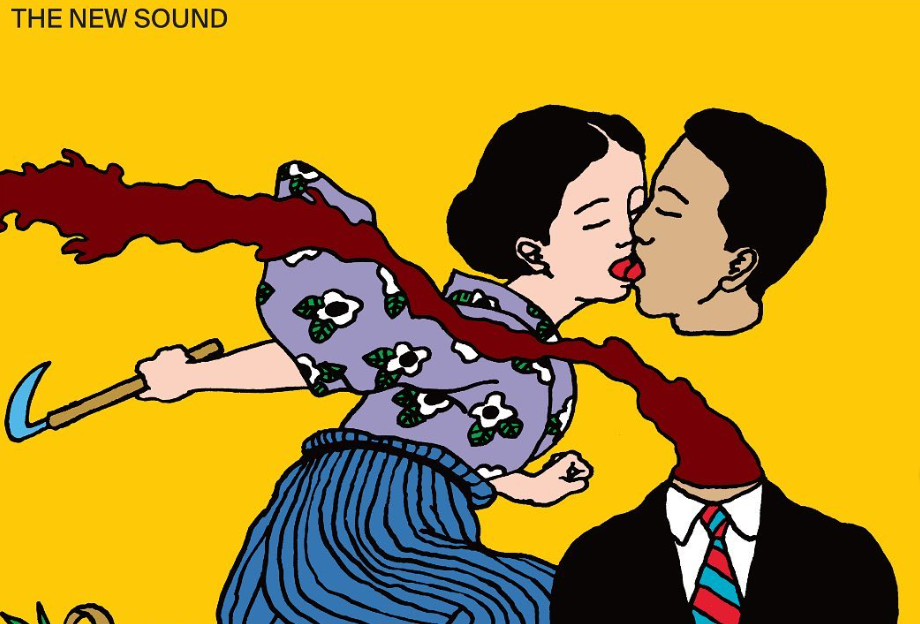
Music Critic Harry Grace reviews Geordie Greep’s first solo album The New Sound, commenting on the prevailing influence of Black Midi on Greep’s solo work
Rising from the ashes of one of the biggest acts in the UK alternative scene, Geordie Greep had much to prove. Would he follow the sound of Black Midi? Would he carve his path using the distinct styles developed on prior albums? Or would he do something completely unrelated and unconventional, lyrically and instrumentally? The answer is somewhere amongst these statements, transparently concealed within a tight composition and Latin American influences. The New Sound is certainly what we expected. Nonetheless, it captures what is incredible about Greep’s former band and the man himself.
While exploring the theatrical elements of 2022’s Hellfire, Greep has incorporated more international rhythm. Having been recorded between Sao Paulo and London, the Brazilian influence is markedly clear. Songs such as ‘Terra’ and ‘Holy Holy’ best embody the Latin American grooves and an overall Bossa Nova-esque sound, similar to Gilberto Gil and Milton Nascimento, the latter of which Greep cites as a direct inspiration for the album.
There are still nods to his prior work, leftovers from the band’s divorce. The album’s opener, ‘Blues’, returns to that absurd and crushing sound that Greep is known for, routinely referring to this sound throughout the album as a way to break up the more melodic sounds of the South American coast. ‘Motorbike’ also follows this trend. Greep gives up reign of the vocals to his former bandmate, and now producer, Seth Evans, to bring a destructive and pummelling potency, the likes of which would be at home on Black Midi’s final album.
Lyrically, the effort is solid, carrying on the zany and laughably obtrusive stories that were present throughout his former band’s tenure
Lyrically, the effort is solid, carrying on the zany and laughably obtrusive stories that were present throughout his former band’s tenure. On ‘Holy Holy’, he puts himself into the shoes of an unreliable narrator, commenting on how he would like his date to go before falling into incomprehensible and aggressive demands. The 12-minute zenith of the album, ‘The Magician’, weaves an intricate and disturbing story of an individual’s multiple insecurities following a tumultuous breakup. Greep continues to look inward throughout the album, particularly concerning mental capacity and confidence. This almost pseudo-self-reflection gets to the heart of Greep’s lyrical commentary, a funny yet devastating look into modern romance and the dark side of love. However, the lyrics have not evolved from the parodies of macho men depicted in Black Midi. Though enjoyable, it is nowhere near as fresh as it was two years ago.
While praise is heaped on the outlandish instrumentation and Greep’s ability to captivate one’s imagination, something is missing. Perhaps this is due to my love of Black Midi, but that missing component is his former bandmates. The drums, though definitely good and infused with lively bongo rhythms, are muted compared to the force produced by Morgan Simpson in Black Midi. The intricate fills and outrageous propensity are certainly lacking. However, the sounds presented on this LP are by no means something to be scoffed at. Perhaps this is why there is no standout masterpiece as there is on Black Midi records, besides the crescendo of ‘The Magician’. It is easy for me to pick out everything Greep isn’t regarding Black Midi, but it hits at the roots of which Black Midi excelled.
Lyrically, the storytelling remains the same… obstructing his work from evolving
Greep still manages to create an enthralling listen, taking those who tune in on a whirlwind tour of various musical styles and lyrical dimensions, culminating in an incredibly solid debut. Lyrically, the storytelling remains the same, parading an ironic narrative of sex workers and the lonely, obstructing his work from evolving. But where it shines, it shines. While by no means Black Midi, an influence that can still be heard, Greep emerges with a new force to be reckoned with. Returning to the top of his game, it’s as if he never left it.
7/10
Read more:

Comments